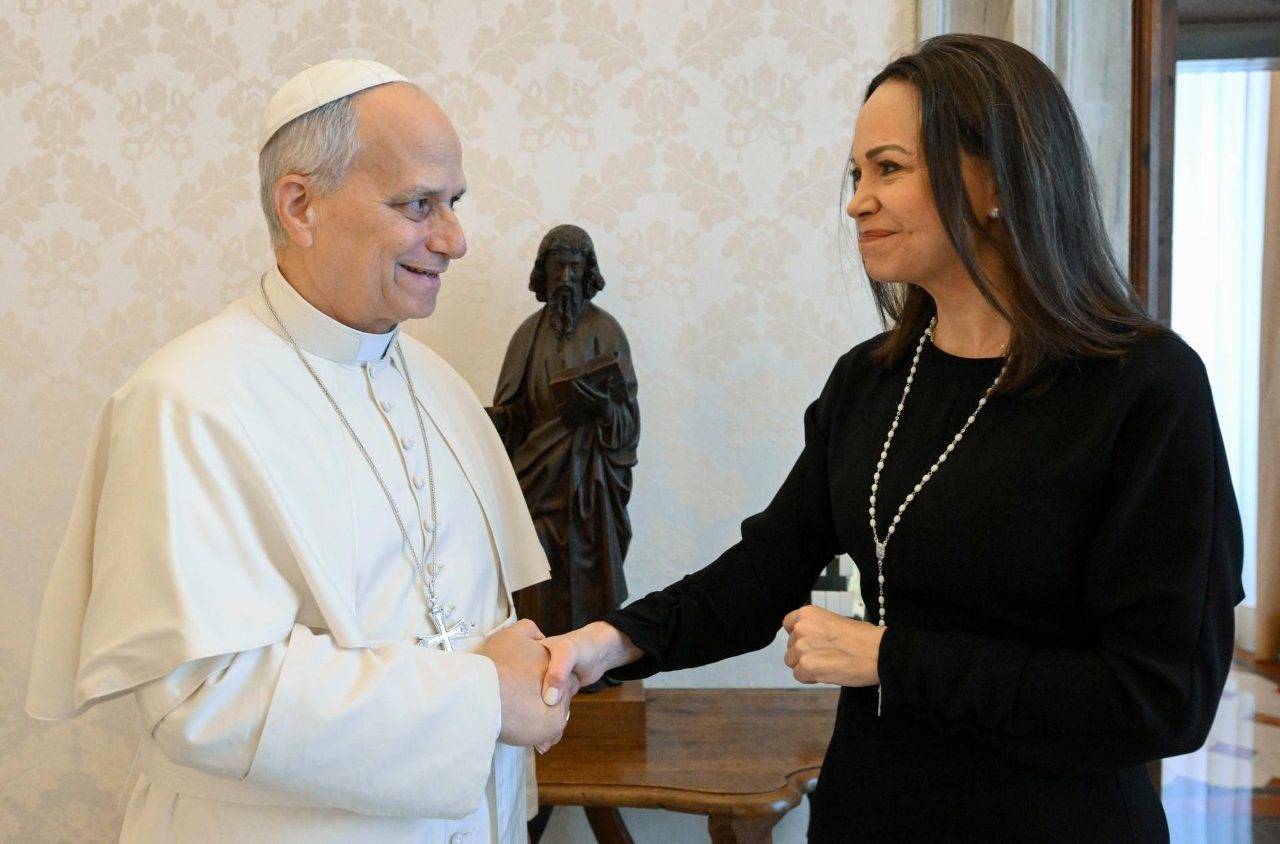[Editor’s Note: Father Matthew P. Schneider is a priest with the Legionaries of Christ. He is originally from Calgary, Canada and has worked in various locations across Canada and the United States He is currently studying a doctoral degree in moral theology through Regina Apostolorum in Rome while living in the United States. He is also known for his writing and social media, using @FrMatthewLC on various platforms. He spoke to Charles Camosy about the ongoing ethical debates about the COVID-19 vaccines.]
Camosy: You’ve been perhaps the most active public figure I’ve seen responding to the very public debate over whether a Catholic may licitly take a COVID vaccine. Can you say something about what has driven you to be so active on this set of issues?
Schneider: There are several reasons. Very early in the pandemic, I started looking at things like how long it would take to flatten the curve such that all Americans got COVID, but we never overwhelmed hospitals and it looked like it would take a long time. However, vaccines would provide a way to end the pandemic sooner. Second, the science of vaccines in general and the newer mRNA vaccines seems really interesting. I’m currently writing a doctoral thesis on moral theology that borders on bioethics, so I tend to be interested in such things. (My thesis is on privacy which started more specifically with an interest in genetic privacy, so not vaccines; but it lead me to a lot of research in microbiology.) Also, after I was diagnosed with autism as an adult, I had investigated the vaccine-autism link and concluded that the scientists were right and there is no connection. I also noticed that imagining such a connection tends to take a rather negative attitude towards those on the spectrum which motivated me to fight antivax misinformation. Finally, all those reasons led me to researching what experts in epidemiology said to better understand the topic, which heightened my interest on the topic. (I even did a whole college course from Penn State on Coursera.)
What are some of the general moral principles in play and how do they connect to Catholic teaching and Catholic tradition?
Let’s list the principles and then examine how they apply to vaccines. We have the issue of preventative medicine, proportionality, where most of the debate is, remote mediated cooperation in evil, and appropriation.
Immunization vaccines are considered a form of preventative medicine. We get vaccinated so our adaptive immune system recognizes a specific pathogen such that the next time it sees it, it will kill it. Preventative medicine would include things like eating right, regular exercise, etc. The Church generally sees preventative medicine as a good, but it is not usually a considered a mandatory good. Certain preventative things do become mandatory goods, like it is mandatory for those working in surgery to wash their hands. On the flip side, I’d recommend almost everyone exercise at least 30 minutes three times a week most weeks, but there’s no sin if you don’t.

Second, we have the issue of proportionality. When one does something in preventive medicine where one looks at the positive and negative effects of actions. For actions which are not intrinsically evil, one must look at the proportions of good and evil consequences to judge morals. This is often prudential based on circumstances. For example, a few weeks back I had COVID and I did not get much exercise that week. In those circumstances, I judged the possible short term negative effects of making COVID worse were larger than the short-term mental health benefit and long-term overall health benefit. This is based on the principle of double effect, in that I look at an action that is moral in itself but has likely or probable positive and negative effects. A moral act should create equal or greater positive effects to the negative effects. This is not purely mathematical, and people may vary on opinions as foresight isn’t perfect. For example, although I judge the likelihood of an injury as slim, when I go to exercise, a particular day I might pull a muscle or break a bone which then makes the consequences of that exercise negative. Beforehand, I acknowledged that possibility, at least implicitly, but I judged it to be unlikely enough that the good effects of exercise would most likely outweigh the bad.
For vaccines in general, we need to look at both the positive and negative effects for proportionality of using them. Everyone acknowledges that for 1 in 500,000 doses or less, vaccines have serious negative side effects. But we also look at effects of the disease they prevent. Let’s say a vaccine has 95 percent effectiveness as many are around there and exactly 95 percent (or 19/20) makes the math easy. That means that if exposed, there is a 1/20th the chance I’d get infected as if I wasn’t vaccinated.
When a strong majority is vaccinated, the chance I’ll be exposed starts going down significantly so the chance I’ll get that pathogen reduces even more. Most of the things we vaccinate are easily transmitted to an unvaccinated person either airborne or by bodily fluids. Most also have a death rate orders of magnitude higher than their serious adverse reaction rate. We can also transmit diseases we have to others. Based on this, even for a vaccine without ethical issues in production or distribution, one needs to judge the proportionality of taking them.
For example, I have never gotten the HPV vaccine as it is only transmitted by bodily fluids and the virus mostly has serious negative effects for women. Being a priest working in academia, I have almost-zero risk. However, were I reassigned to be a hospital chaplain, I would likely get it as then the risks of transmission both to me and from me as an asymptomatic carrier are significantly increased.
On the other hand, I have gotten every vaccine for airborne diseases I qualify for, including an annual flu shot, as the risk of getting them and transmitting them is high given confessions, meeting with others, distributing communion, etc. Many vaccines are given early in life where we don’t know someone’s path, so it is generally good to get all recommended vaccines. Retrospectively if the HPV vaccine existed when I was a teen, I should have gotten it as at that point I did not know what path I’d take in life, and I’d have several girlfriends before marriage, and HPV can be transmitted easily through kissing.
Then, we have the issue of remote mediated cooperation in evil. Cooperation in evil is also related to double effect like proportionality. Cooperation in evil means you in some way contributed to an immoral act by another. There are two ways this can be always immoral. If it is formal, in that you will the evil being done, it is always immoral.
If it is proximate, then it is also evil. Proximate means one is right there in the action. Examples of this would be a nurse handing abortion tools to a doctor or a getaway driver for a bank robbery.
Remote cooperation can also be very different degrees of remoteness. For example, working it a large hospital with hundreds or even thousands of employees where abortions are done in another part of the building is much more remote than being the secretary at a small clinic where one of the services is abortion.
The more-proximate/less-remote one is, the higher the need to avoid the situation. For example, most would argue that a person could take the job as a secretary at such a clinic if otherwise the family would lack food, but most constantly be looking for a job without that connection. On the other hand, the degree a nurse in the cancer wing participates in the abortions in another wing is very minor, so such a job can be sought out without concern for such a remote connection.
I have described such really remote cooperation as doubly or triply remote cooperation when multiple steps are needed to connect the two. As you get further and further, you get to a point where such cooperation is so small as it may not even be morally relevant. For example, when shopping, if I’m comparing products, I’ll consider the human rights record of the country of manufacture but that is only one factor.
Finally, we have appropriation. Appropriation is taking something from a morally wrong act in the past. Often it is a form of cooperation but not always. If I buy a stolen item, I encourage the thief to keep stealing more items, and cooperate in their future thefts. On the other hand, if I look at results from some highly immoral Nazi experiments, and use that information, I don’t in any way help similar experiments be done now or in the future. Appropriation without cooperation is not even a serious ethical issue unless there is equivalent information or material with zero ethical concerns.
How would you apply these moral principles to the two vaccines now available in the U.S. from Pfizer and Moderna?
I think the idea of preventative medicine is the same and proportionality is the same except we need to add in consideration of the final two. I spoke about those before, and I think I expressed myself well then. First, cooperation:
In 1973, a baby died three months into the mother’s pregnancy, either by abortion or miscarriage. (If it was by miscarriage and the mother consented to donate part of her child’s body to medicine, there is no evil to be cooperated in.) Some kidney cells were grown in the lab and became known by the scientific name HEK293. The cells of that dead baby are now gone but the descendant cells are still cultivated. These cells have been used for hundreds of experiments. Some testing of the Pfizer and Moderna vaccines are included in those hundreds of experiments.
In speaking of this remoteness, we need to look at the steps removed. First, the abortion or miscarriage was not done for the cell line, but was happening anyways. Second, the cells were not created for this experiment but already existed. Third, this was a test of the vaccine not the production of the vaccine. Fourth, in one test done by each company, the test didn’t even use HEK293 directly but used mice descendant from a mouse edited with HEK293 to produce human rather than mouse lung-lining proteins. So, yet another step removed.
Then appropriation:
Some would argue that the use of fetal cell lines is only appropriation, not cooperation as this does not contribute to another abortion. However, I do think it might contribute to taking more cells from an aborted fetus. Some argue that such cell lines are immortal. They reproduce a long time but are not quite immortal. In fact, in 2015 new cells were taken from another fetus to start Walvax-2 where the fetus and cell type were chosen to imitate MRC-5. MRC-5 is an existing cell line used in some other vaccines. The new line was similar but reproduced more quickly. I suspect if MRC-5 had fallen out of favor before then, Walvax-2 would never have been created. This is a very remote connection to taking a few cells from a single source. Thus, not a big moral issue, but not without the issue of cooperation.
On the other hand, we need to ask if a test done using HEK293 as in the Moderna and Pfizer vaccines is appropriation with or without cooperation. The big question here is whether this test is done once or repeated for quality control in manufacturing. It would be cooperation in the continuation of this cell line if the cell line was continually used in repeated tests.
Is there any difference in your views on some of the other vaccines out there or on the way?
There are some that are more a concern and some that are less. A few use fetal cell lines in production which is a less steps remote cooperation. Thus, ones like Moderna and Pfizer should be preferred over this. The Oxford-AstraZeneca vaccine is one example of this. On the other hand, there are some with zero moral issues at all, even in testing, however, all of these are a little further away from final testing and approval. Dominican Father Nicanor Austriaco, SThD, PhD, is working on a vaccine using yeast for example. The Charlotte Lozier Institute is analyzing the published data from production, testing etc. of the various COVID vaccines. I like that they have both ethicists and medical experts on staff.
This debate has produced teachable moment for the faithful with respect to cooperation with evil more generally. Do you think we will become more aware of our remote cooperation with evil and strive to avoid it when possible? One example that I can’t get out of my mind are the products likely being made by forced Muslim labor in China right now.
I think this is a positive step. I wrote about a dozen things many Americans do without thinking that are less remote cooperation in evil than the Moderna or Pfizer vaccines. Part of it was to show through examples how remote this cooperation was. Part was also to get people thinking about these.
I think about these more now. As I noted above, I look at the country of manufacture as a factor in what I buy and I look at sourcing on coffee. I would support anyone who wanted to take on any of these more directly such as those fighting the Uyghur genocide you mentioned, or if someone started a non-profit to improve labor conditions in cobalt mining in the DRC which we all rely on for the batteries in our portable devices.
An earlier version of this article said the HPV virus only has serious negative effects for women.














